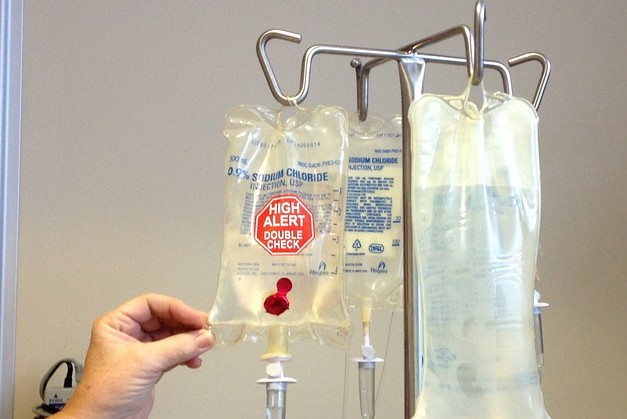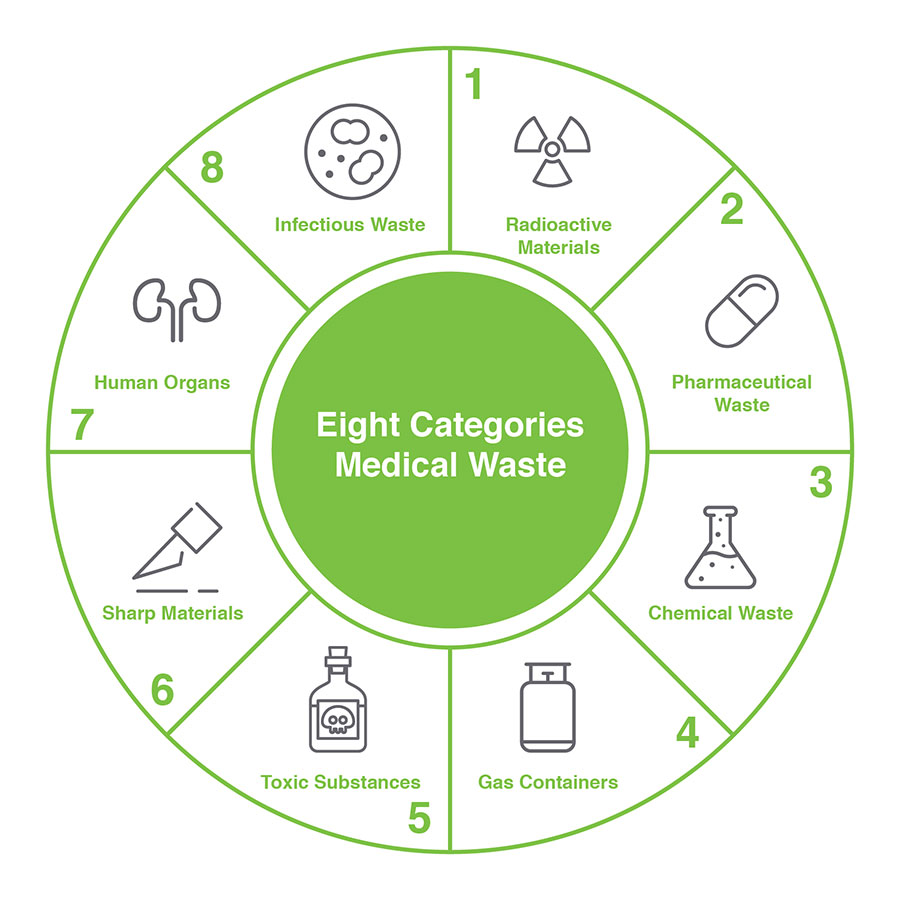Shielding Health: Expert Medical Waste Removal Services for a Tidy Setting
Wiki Article
Stay Ahead of Laws: Specialist Suggestions on Medical Waste Disposal
In a world where the health care sector is frequently developing, it is imperative for medical facilities to stay in advance of regulations when it concerns the appropriate disposal of medical waste. With rigid standards and constant regulatory changes, it can be challenging to navigate the complexities of this process. Nevertheless, with skilled suggestions, centers can make certain conformity and minimize risks connected with improper waste disposal. From recognizing the different categories of medical waste to implementing the appropriate collection and partition techniques, this discussion will provide workable suggestions and valuable understandings to aid centers stay in advance of laws in the ever-changing landscape of medical waste disposal.Recognizing Clinical Waste Categories
Understanding clinical waste classifications is crucial for appropriate disposal and management in medical care facilities. Clinical waste refers to any kind of waste created by medical care tasks that might present a risk to public wellness or the setting. It is important to classify medical waste properly to guarantee its secure handling, transportation, treatment, and disposal.There are several classifications of medical waste that healthcare facilities require to be aware of. The most usual classifications consist of contagious waste, pathological waste, sharps waste, pharmaceutical waste, and chemical waste. Each classification has details guidelines and guidelines for its proper management and disposal.
Pathological waste refers to human cells, body organs, or body components that require special handling and disposal. Pharmaceutical waste comprises expired, extra, or contaminated medications that require cautious handling and disposal.
Staying Up-To-Date With Regulatory Modifications
Staying present with regulatory modifications is critical for health care facilities to guarantee conformity and appropriate management of medical garbage disposal. medical waste removal services. With laws frequently progressing, it is crucial for healthcare centers to stay current to stay clear of charges, fines, and prospective injury to the setting and public healthTo stay ahead of regulative changes, healthcare facilities should establish a system for surveillance and monitoring updates. This can be done by registering for regulatory newsletters, attending workshops and seminars, and proactively taking part in sector organizations. Additionally, facilities ought to assign a personnel or group in charge of staying notified and disseminating details to pertinent stakeholders.
Regular communication with regulative companies is likewise vital. Health care facilities must establish relationships with local, state, and federal companies to guarantee they understand any type of adjustments in policies that might affect their waste management techniques. This can be done via normal conferences, involvement in public comment periods, and proactive engagement with governing firms.
In addition, health care facilities ought to think about partnering with waste management companies that specialize in medical waste disposal (medical waste disposal services with WasteX). These companies are commonly fluent in the latest laws and can offer assistance and assistance to make sure compliance
Carrying Out Proper Collection and Partition Techniques
To effectively take care of clinical garbage disposal, health care centers must establish appropriate collection and segregation methods based on regulative guidelines. Implementing these methods guarantees the secure handling and disposal of possibly dangerous materials, safeguards the environment, and decreases the danger of injuries and infections to healthcare employees and the public.
Proper collection and partition methods entail making use of marked containers and classifying systems. Medical care facilities must offer plainly classified containers for different sorts of medical waste, such as sharps, contagious waste, pharmaceutical waste, and non-hazardous waste. These containers must be color-coded and plainly significant to prevent confusion and promote simple recognition.
Additionally, healthcare facilities ought to train their personnel on the appropriate treatments for collecting and setting apart clinical waste. This consists of enlightening them on the different sorts of waste, the ideal containers to utilize, and the relevance of following guidelines and regulations. Regular training sessions and refresher course programs ought to be carried out to make certain that team member continue to be updated on best practices.
In addition, healthcare centers must develop a system for regular collection and disposal of medical waste. This might include partnering with qualified waste monitoring firms that specialize in medical waste disposal. These business will certainly make sure that the collected waste is transferred and taken care of in compliance with governing requirements.
Picking the Right Disposal Techniques

Incineration is just one of the most usual and reliable techniques for throwing away certain kinds of medical waste, such as pathological waste and sharps. It entails the controlled burning of waste at high temperatures, decreasing it to ash. Incineration can release damaging toxins right into the air and contribute to air pollution.

Various other disposal methods consist of chemical treatment, microwave treatment, and landfilling. Chemical therapy includes making use of chemicals to neutralize the waste and sanitize. Microwave therapy utilizes microwave energy to heat and decontaminate the waste. Landfilling includes hiding the waste in an assigned land fill area (medical waste disposal services with WasteX). Landfilling needs to be the last hotel due to the potential risk of contamination to soil and groundwater.
Making Sure Conformity Via Documents and Training
After very carefully taking into consideration the suitable disposal techniques for medical waste, health care facilities should make certain conformity with laws and decrease ecological influence by carrying out reliable documentation and training treatments. This step is medical waste disposal services with WasteX vital in preserving a risk-free and sustainable atmosphere for both health care workers and the public.
Health care workers who manage clinical waste must obtain ideal training on waste segregation, managing, and disposal treatments. By giving thorough training, medical care centers can encourage their personnel to make informed decisions and reduce the risk of improper waste disposal.
Conclusion
To conclude, staying in advance of policies in medical waste disposal is essential for healthcare facilities. medical waste removal services. Comprehending the different classifications of clinical waste, staying updated with governing adjustments, carrying out appropriate collection and segregation methods, choosing the suitable disposal approaches, and ensuring compliance with paperwork and training are all important steps. By adhering to these standards, healthcare companies can efficiently manage and get rid of of clinical waste in a risk-free and liable fashionFrom comprehending the different groups of medical waste to carrying out the best collection and segregation techniques, this discussion will certainly offer actionable ideas and valuable understandings to help centers stay ahead of regulations in the ever-changing landscape of clinical waste disposal. - medical waste disposal services with WasteX
The most medical waste disposal services with WasteX common classifications consist of transmittable waste, pathological waste, sharps waste, pharmaceutical waste, and chemical waste. Medical care centers should offer plainly classified containers for various kinds of clinical waste, such as sharps, transmittable waste, pharmaceutical waste, and non-hazardous waste. Health care facilities ought to establish a detailed system to tape and track all facets of clinical waste disposal, consisting of kinds of waste created, amounts, and disposal approaches used. Health care employees who take care of medical waste ought to obtain appropriate training on waste segregation, handling, and disposal procedures.
Report this wiki page